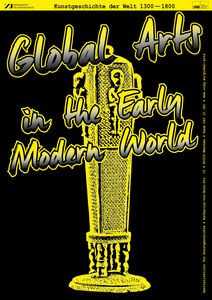Vortrag Monica Juneja
Termindetails
Wann
von 18:15 bis 20:00
Art
Wo
‘Likeness’ as travelling concept – artfully portraying the universal ruler in early modern South Asia
The notion of a “likeness” or “portrait” – as art historical writing in European languages terms it – took on many different forms in the universal empires of Asia during early modern times. Though abundantly produced – painted or drawn – portraits of kings and nobles were said to be marked by a degree of circumspection stemming from anxieties about representing the human image, even as being open to possibilities offered by naturalist forms that came with European portraits. The talk examines the tensions that operated along different axes governing the creation of imperial “likenesses” in early modern South Asia in a historical context of intense transculturation: tensions between the verbal and pictorial, veristic and formulaic renderings, between an aesthetic of containment and a display of bodily expressivity. Unravelling the dynamics of appropriation, domestication and refusal in relation to circulating aesthetic genres remains a methodological challenge to the conceptual apparatus of an art history as it strives for a lingua franca that would plausibly accommodate plurality and difference.
Prof. Monica Juneja, Heidelberg
Monica Juneja is Professor of Global Art History at the Cluster "Asia and Europe" since January 2009. Before her assignment in Heidelberg, she was Visiting Professor at Emory University, Atlanta, USA. She has been Professor at the University of Delhi, India, has held visiting professorial positions at the Universities of Vienna and Hannover in addition to research and teaching assignments at the Universities of Bielefeld, Halle a. d. Saale and Heidelberg. After graduating from the University of Delhi, she did her doctorate at the École des Hautes Études en Sciences Sociales, Paris. Monica Juneja has held Fellowships of the Maison des Sciences de l’Homme, German Academic Exchange Service, the Alexander von Humboldt Foundation and the Volkswagen Foundation. Her areas of research span the fields of European and Indian studies. They include practices of visual representation, the disciplinary trajectories of art history in South Asia, gender and political iconography in modern France, the interface between Christianisation, religious identities and cultural practices in early modern South Asia.

